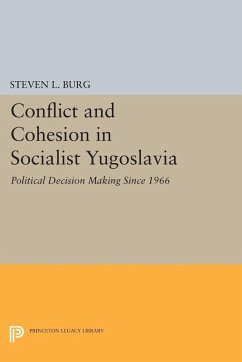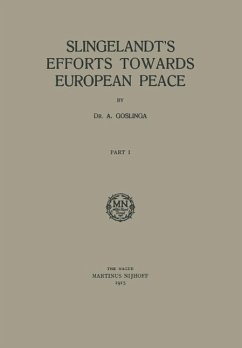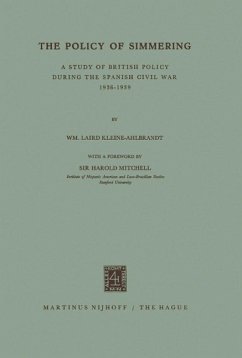
National Conflict in Czechoslovakia (eBook, PDF)
The Making and Remaking of a State, 1918-1987
Versandkostenfrei!
Sofort per Download lieferbar
37,95 €
inkl. MwSt.
Weitere Ausgaben:

PAYBACK Punkte
19 °P sammeln!
Czechoslovak domestic politics, including the long-standing policy dilemmas stemming from the so-called Slovak question, are usually approached from a historical standpoint. Here Carol Leff views the subject from a fresh analytic perspective. The Slovaks' dissatisfaction with their status in the constitutional order has dogged Czechoslovakia from the country's inception after World War I, and the substantial Slovak minority (now about one-third of the population) has recurrently complicated the state's struggle for self-definition, stability, and even survival. Professor Leff establishes a sys...
Czechoslovak domestic politics, including the long-standing policy dilemmas stemming from the so-called Slovak question, are usually approached from a historical standpoint. Here Carol Leff views the subject from a fresh analytic perspective. The Slovaks' dissatisfaction with their status in the constitutional order has dogged Czechoslovakia from the country's inception after World War I, and the substantial Slovak minority (now about one-third of the population) has recurrently complicated the state's struggle for self-definition, stability, and even survival. Professor Leff establishes a systematic analytic framework for the discussion of the Czech-Slovak relationship and how it has affected and been affected by state power and the political system.
Czechoslovakia's history is virtually a museum for the major European political alternatives of the twentieth century, and this book is an experiment in applying the comparative methodology of political science not to cross-national studies but to the analysis of a single country over time. The author organizes consideration of policy making on the Slovak national question around three component elements and their impact on effective problem solving: the institutional structure of the pre-Munich republic and the postwar socialist state, leadership values and premises relevant to the disposition of the national question, and patterns of Czech and Slovak leadership interaction.
Originally published in 1988.
The Princeton Legacy Library uses the latest print-on-demand technology to again make available previously out-of-print books from the distinguished backlist of Princeton University Press. These editions preserve the original texts of these important books while presenting them in durable paperback and hardcover editions. The goal of the Princeton Legacy Library is to vastly increase access to the rich scholarly heritage found in the thousands of books published by Princeton University Press since its founding in 1905.
Czechoslovakia's history is virtually a museum for the major European political alternatives of the twentieth century, and this book is an experiment in applying the comparative methodology of political science not to cross-national studies but to the analysis of a single country over time. The author organizes consideration of policy making on the Slovak national question around three component elements and their impact on effective problem solving: the institutional structure of the pre-Munich republic and the postwar socialist state, leadership values and premises relevant to the disposition of the national question, and patterns of Czech and Slovak leadership interaction.
Originally published in 1988.
The Princeton Legacy Library uses the latest print-on-demand technology to again make available previously out-of-print books from the distinguished backlist of Princeton University Press. These editions preserve the original texts of these important books while presenting them in durable paperback and hardcover editions. The goal of the Princeton Legacy Library is to vastly increase access to the rich scholarly heritage found in the thousands of books published by Princeton University Press since its founding in 1905.
Dieser Download kann aus rechtlichen Gründen nur mit Rechnungsadresse in A, D ausgeliefert werden.













